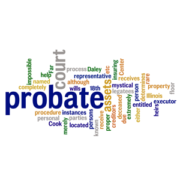Preventing Children From Blowing Through Their Inheritance
Blood is thicker than water and we get to pick our friends, not our families. There are a lot of pithy and whimsical sayings that have been passed down through the generations that attempt to explain and characterize the complex and often contradictory nature of family relations. When it comes to deciding who gets the money and stuff after a family member dies, often, tragically, the baser natures of our family members are on full display.
Trusts are an ubiquitous estate planning tool that a lot of people have heard about but not a lot of people know the details of how they work. Trusts afford privacy for trust assets, control over how, when, and if trust assets are distributed, and potential protection against creditors, litigants, divorce, and greedy family members. All these benefits associated with trusts sound great but how exactly is all this accomplished? Once again, consulting with an experienced Cleveland estate planning attorney is always the quickest and best way to get your estate planning questions answered.
- What are spendthrift trusts/provisions?
A common concern for estate planners is, how do I prevent my descendants from wasting their inheritance? A quick look at any one of the innumerable stories of multi-million dollar lottery winners who end up broke and destitute a few years later illustrates how most who come into vast sums of money quickly tend to spend that money unwisely. Now, if you decide using a trust is right for you and your family, within the structure of your trust, you can write in terms that will lower the opportunities for named beneficiaries to squander their trust distributions. Though not %100 foolproof, spendthrift trusts and spendthrift provisions are very common tools for trust makers to use to protect their trust and protect trust beneficiaries from themselves.
In Ohio a spendthrift trust is a trust that imposes a restraint on the voluntary and involuntary transfer of the beneficiary’s interest in trust assets assigned to that particular beneficiary.
Under Ohio law, specifically the Ohio Trust Code, spendthrift provisions are terms within a trust which restrain the transfer of a trust beneficiary’s interest. Spendthrift provisions block both voluntary transfer of trust assets stemming from the beneficiary action and volition and involuntary transfer of trust assets, usually from creditors or assignees whose claims are usually traceable back to a named trust beneficiary. See O.R.C. § 5801.01 (T). As a general rule, a spendthrift provision is valid under the UTC only if it restrains both voluntary and involuntary transfer.
For illustration purposes, here is an example of a bare bones spendthrift provision. Note, an experienced estate planning attorney would not solely rely on the follow language to protect you.
“A. Spendthrift Limits. No interest in a trust under this instrument shall be subject to the beneficiary’s liabilities or creditor claims or to assignment or anticipation.”
How do they work?
Looking at the legal definition for spendthrift trusts and spendthrift provisions, it may be difficult to understand how these operate and, consequently, how they may be beneficial. In a nut shell, if a trust is or has a spendthrift provision, in most circumstances, trust assets are not subject to enforcement of a judgment until it is distributed to the beneficiary. This means that a trust beneficiary cannot use trust property that is assigned to them as collateral for a loan or to pay off a civil judgment.
Thus, spendthrifts can prevent creditors, litigants, or the beneficiaries themselves from reaching into the trust to take assets contrary to the terms of the trust. This “reaching in” usually stems from beneficiary misconduct. Note, however, in some circumstances, spendthrift can be circumvented. Namely, in the case of certain child support obligations and claims of the State of Ohio or the United States. Whether spendthrifts can be circumvented depends highly on the nature of the claim against the trust and the nature and language of the trust. An experienced Ohio estate planning attorney is in the best position to determine if and when a particular creditor can reach past a spendthrift and get at trust assets.
Why do I need them?
Put bluntly, no one likes having their money or property taken from them. Or in this instance, by creditors, litigants, or claimants of beneficiaries uncontemplated by the language of the trust. A primary reason for any grantor in making a trust is to ensure control of trust assets. So, if unknown third parties reach into a trust due to a beneficiary doing something unwise, it goes contrary to express wishes of the grantor and all the effort that went into making a trust.
Further, premature distributions of trust assets can have serious consequences for trust management. The “internal finances” of a trust are often based upon assumptions regarding the amount of money/assets within trust accounts and predetermined distribution times. So, if money/assets are taken early this can lead to premature exhaustion of trust funds which may affect the whether future trust distributions can occur at all, in that trustees can’t distribute what isn’t there. Further, premature distribution may leave trustees with insufficient assets to pay trust taxes or administrative costs. There is also the unfairness of premature distribution, why should beneficiaries who followed the terms of the trust get their distributions later or in a lesser amount than the beneficiary who has creditors, civil judgments, or owes back child support.
The importance of comprehensive and effective drafting a trust terms cannot be understated. Often it is what is left out of trust documents which end up hurting grantors and trust beneficiaries. Spendthrift trusts and spendthrift provisions can come in a variety of forms to match the needs and desires of a particular grantor. The utility of spendthrifts, however, can only be enjoyed by grantors if a competent Ohio estate planning attorney is used in the formulation and drafting of a trust. Never underestimate the importance of matching good legal counsel with comprehensive estate planning.
Helping You and Your Loved Ones Plan for the Future.











